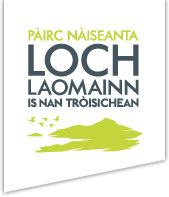
Guest blog: So, what is affordable housing? (a provider’s perspective)
Tony Teasdale is Director of Rural Stirling Housing Association – a not-for profit, community controlled charity that has developed over 600 affordable homes for rent and low-cost home-ownership in the rural Stirling area – the majority within the National Park.
Following on from our previous blogs on housing, our first ever LIVE Park guest blogger gives his perspective on affordable housing.
To begin, what does ‘affordable housing’ mean?
“Affordable housing” is a term that is frequently used but less often understood. Hopefully these thoughts will help.
The term is generally taken to refer to homes, for rent or to buy, that are of a reasonable quality and affordable to people on modest incomes. That usually means at a cost that is below the market rent or sale price for the area. This will obviously vary from area to area.
From our day to day work we see evidence of the need for more affordable homes. Housing available in the market place – for rent or buy – is not meeting the needs of many local households. We have hundreds of folk on our housing list who are living in inadequate accommodation – often in expensive, short-term private rented accommodation or staying with friends or family or living in homes that are no longer suitable to their physical needs.
There is now a wider range of folk looking for affordable housing. The financial crash and changes in the banking system have resulted in a situation where many who would have looked to buy homes for sale in the market are now unable to do so because they cannot get a mortgage.
So, affordable housing is about intervening in some way to help meet the needs of individuals within local communities – but it is also about sustaining the community itself.
We believe that that includes helping to ensure that younger people and others on lower incomes are able to remain in or move back to the communities of the National Park. This is important for a vibrant and balanced community and for the local economy and service provision – helping to ensure an available workforce for local businesses and sometimes making the difference between a school, nursery or local shop remaining open.
We also think it is not just about numbers and price but also about quality. That includes making sure that new homes meet a reasonable standard of energy efficiency – the other dimension of affordability. It also means ensuring a mix of house types to meet current and future needs – including that of the burgeoning elderly population.
But how does affordable housing work?
Affordable housing can be developed by social landlords, community bodies or private companies and land-owners, including estates. It can take different forms, from rented accommodation to shared ownership, discounted housing for sale including plots for self- build, and just low-cost housing.
So, who gets these homes?
That depends on the type of housing provided and what body is providing it. Councils and housing associations maintain “housing lists” to which people can apply. Applicants are assessed on the basis of their housing needs (using a points system) and also their need to live in a particular area. Practice varies from landlord to landlord but RSHA operates a Local Letting Initiative for at least the first let of new homes built. This gives priority to those folk, with a housing need, who either live in that area or have a demonstrable need to move there – for employment or family support reasons
How can we make it happen?
Developing affordable homes locally is not easy. The preferred form will depend on the levels of need and demand in that area and will be influenced by the area’s existing housing stock, local market rents/prices and what people can afford to pay. It will also depend on the availability of suitable land and, often, the availability or otherwise of funding.
RSHA works in partnership with the National Park Authority and Stirling Council to provide Rural Housing Enabler services. This involves us in working with landowners and communities within the Park to identify options for meeting housing needs and to provide advice and support in respect of the different routes to develop affordable housing. If you would like more information please contact: tony@rsha.org.uk.

